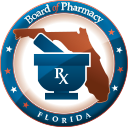Statement of
Margaret A. Hamburg, M.D.
Commissioner of Food and Drugs
Food and Drug Administration
Department of Health and Human Services
Before the
Subcommittee on Oversight and Investigations
House Committee on Energy and Commerce
U.S. House of Representatives
April 16, 2013
INTRODUCTION
Mr. Chairman and Members of the Subcommittee, I am Dr. Margaret Hamburg, Commissioner of Food and Drugs at the Food and Drug Administration (FDA or the Agency), which is part of the Department of Health and Human Services (HHS). Thank you for the opportunity to be here today to discuss important issues related to pharmacy compounding.
We are at a critical point where we must work together to improve the safety of drugs produced by compounding pharmacies. As the compounding industry has grown and changed, we have seen too many injuries and deaths over many years caused by unsafe practices. I testified in front of this Subcommittee on November 14, 2012, soon after the emergence of a tragic fungal meningitis outbreak associated with compounded methylprednisolone acetate (MPA), a steroid injectable product distributed by the New England Compounding Center (NECC). To date, that outbreak has resulted in 51 deaths and over 730 people sickened in 20 States. Sadly, NECC was not an isolated incident. Indeed, over the past 20 years we have seen multiple situations where compounded products have caused deaths and serious injuries. For example, in 2001, 13 patients in California were hospitalized and 22 received medical care following injections from contaminated vials of a steroid solution. Three patients died as a result. In 2005, contaminated cardioplegia solution resulted in five cases of severe system inflammatory infections; three of these patients died. In 2007, three people died from multiple organ failure after a Texas compounder sold superpotent colchicine that was as much as 640 percent the labeled strength. In 2011, there were 19 cases of Serratia marcescens bacterial infections, including nine deaths, associated with contaminated total parenteral nutrition products, and in 2012, 43 patients developed fungal eye infections from contaminated sterile ophthalmic drug products. At least 29 of these patients suffered vision loss. These incidents are emblematic of long-standing issues associated with the practice of compounding and the public health concerns that can result from unsafe practices in compounding pharmacies.





